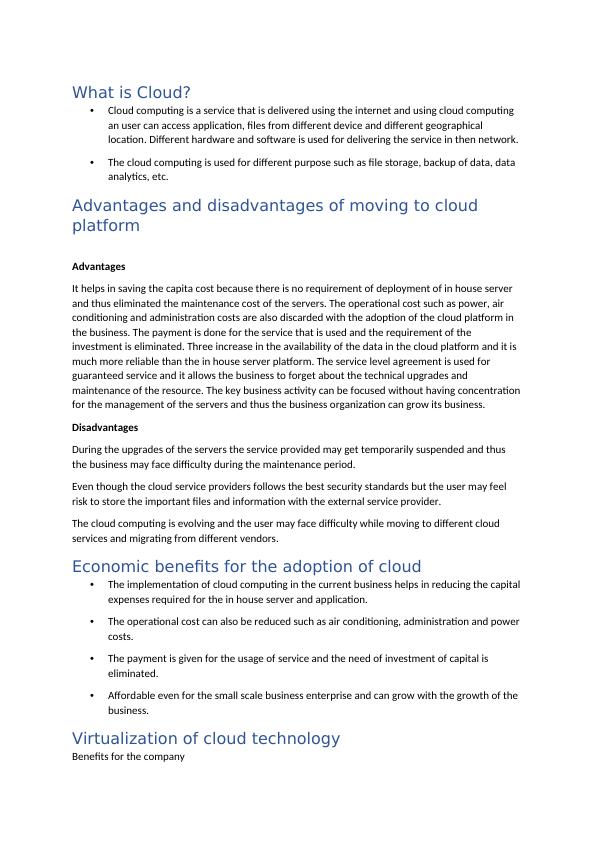Cloud Computing: Definition, Advantages, Disadvantages, Economic Benefits, Virtualization, Hybrid Cloud Evaluation
2 Pages759 Words164 Views
Added on 2023-06-05
About This Document
Cloud computing is a service delivered over the internet that allows users to access applications and files from different devices and locations. It has advantages such as cost savings, increased availability, and guaranteed service. However, there are also disadvantages such as temporary service suspension during upgrades and security risks. Economic benefits include reduced capital and operational expenses. Virtualization increases resource management efficiency and employee productivity. Hybrid cloud evaluation involves analyzing factors such as base platform choice, vendor lock-in, tool scalability, and cost.
Cloud Computing: Definition, Advantages, Disadvantages, Economic Benefits, Virtualization, Hybrid Cloud Evaluation
Added on 2023-06-05
ShareRelated Documents
End of preview
Want to access all the pages? Upload your documents or become a member.
Cloud Computing: Advantages, Disadvantages, Economic Benefits, Virtualization, and Hybrid Clouds
|8
|418
|90
Cloud Computing Security PDF
|13
|3038
|39
Cloud Based Solutions and SDLC Approach for My Record System
|14
|2645
|497
Advantages and Disadvantages of Moving to a Virtual/Cloud Environment
|10
|2319
|383
Cloud Computing model Implementation in Video Dev Assignment 2022
|35
|2314
|20
Assignment | Virtualization and Cloud Computing
|12
|2652
|262

